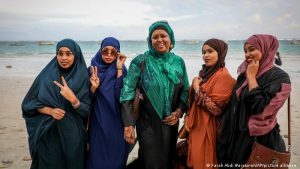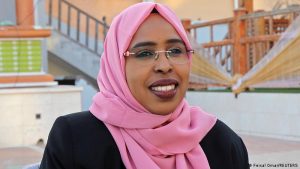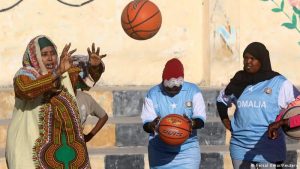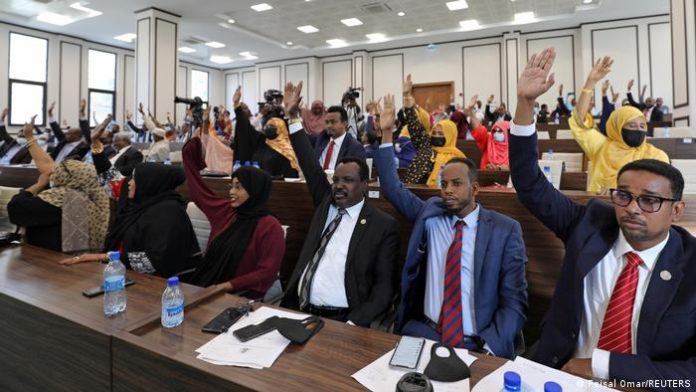It’s not easy being a female politician in Somalia, which is rife with conflict.
Due to deeply ingrained traditional prejudices, men have long dominated national and local leadership roles in the Horn of Africa nation.
Somalia has established a 30% female quota in the legislature. The Somali Women Association, on the other hand, claims that regional clan presidents are overlooking or rejecting potential candidates, leaving the quota unfilled.
Amino Dhurow is all too familiar with this struggle. The Mogadishu-based politician is also disabled, and he claims that discrimination still exists in Somali society, despite the fact that the country’s provisional constitution includes provisions to protect women seeking government jobs.
“I am one of many disabled Somali women, and I advocate for the rights of disabled people,” Dhurow told DW. “I did everything I could to run for a seat in the current parliamentary elections. I hoped to meet other Somali women and gain their support.”

However, things did not go as planned.
She explains, “Unfortunately, it did not happen because my clan elders refused to allow me to represent them in parliament.” “This means that disabled women have no political representation at all, and we are not even included in the 30% quota.” This is inhumane and discriminatory.
Breaking down traditional barriers
In Somalia, where the clan-dominated system makes it difficult for women to succeed in politics, Dhurow’s story is not unique.
Both men and women with disabilities are viewed as powerless and unfit to hold such positions in Somalia’s conservative society.
Women are typically excluded from decision-making processes in their communities, despite the fact that they are often the primary income providers. For many, these cultural and social barriers mean that their political ambitions are dashed before they even get started.

Despite the odds, some people persist: Amina Mohamed Abdi, one of the Somali government’s most outspoken critics, was elected to parliament for the first time at the age of 24 in 2012. Throughout her political career, she defied clan elders on numerous occasions and accused authorities of attempting to prevent her from running.
Abdi was tragically killed on March 23 while campaigning in rural Somalia ahead of long-delayed parliamentary elections, in a series of bomb attacks claimed by militant group al-Shabaab.
Participation of women is a “fundamental issue.”
Change begins with better representation of women in the executive branch of government, according to young Somali women determined to make a difference.
Hamdi Adam, a political science graduate, told DW, “Women’s political participation is a fundamental issue.” “In a positive way, our constitution protects women’s direct participation in public decision-making and equal rights, which shapes democracy and good governance. Women should be strongly encouraged to become more involved in politics.”

In Somalia’s current federal government, only four women hold ministerial positions, while 14 women sit in the upper house and 51 in the lower house.
Hanifa Mohamed Ibrahim, Somalia’s Minister for Women and Human Rights Development, says that these figures need to rise as the country prepares for elections.
“Previously, we had 67 seats in the lower house, and we know that 20 more seats in the house are yet to be elected,” she told DW.
“As Somali women in politics, we need to push our agenda forward and gain more political representation across the board.”

